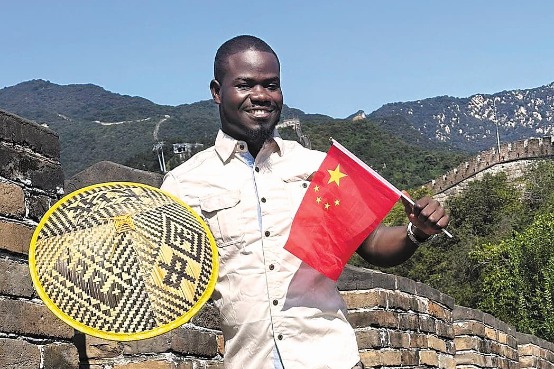Chile's 'seed guardians' protect biodiversity

A group of farmers in Chile, called "seed guardians", are working to preserve and distribute crop varieties that have cultural or biodiversity significance and may be in danger of disappearing. Others in Latin America may follow with varied goals, but overall they aim to improve the environment and agricultural diversity.
Some of these seed guardians are private companies while others are nonprofit organizations. One example is the Chilean supplier of native seeds and plants called Chileflora, which lists 241 seed varieties and 2,202 plants in its catalog — varieties such as Chilean palm, which remains endangered because of factors such as the limited availability of seeds, according to the Chilean National Forest Corporation.
Another group, Semilla Austral, consisting of 40 farming families in Chile, is working to address the disappearance of agricultural and food biodiversity.
"We have come to realize that agricultural and food biodiversity is disappearing from the planet," said Valentina Vives Granella, Semilla Austral's manager and an environmental chemist. "We are increasingly consuming a reduced variety of crops."
Semilla Austral began its efforts to strengthen local seed systems in 2010 and formalized them in 2014. The farmers "manage seeds, including production, selection, improvement, conservation, commercialization, exchange and other practices for recirculation", Granella said.
The group receives seed lots from members and distributes them across the country. In 2020, it began exporting, with the first international shipment heading to France.
Variety of techniques
It uses a variety of techniques to preserve seeds, such as planting, cultivation, harvesting and all aspects of seed handling.
"We want to stop depending on foreign seeds and cultivate a territorial connection through food and agro-food systems," Granella said. "When we care for it, Mother Earth is generous."
Another Chilean group working to protect seeds is Anamuri, an association of rural and indigenous women. It uses traditional techniques to protect seeds, such as the indigenous Mapuche approach to hang seeds near hearths to preserve them for planting in the following year.
"These ancestral methods ensure the survival of seeds and nutritious food, connecting them with nature, the Earth, the sun's energy and clean water," said Rosa Guzman Sazo, national director of Anamuri.
Rural women use these techniques to protect hundreds of crop varieties that may not be available in commercial markets, Sazo said.
Sazo is worried that some international agreements Chile has signed may pose a severe threat to food sovereignty. "If we lose control over our seeds, we lose control over our food," Sazo added.
Also in Latin America, Brazil has 420 seed guardians who work to conserve biodiversity by collecting local species resistant to climate change. They aim to enhance food security in a country where biodiversity is threatened by slash-and-burn agriculture methods and uncontrolled demand for lumber.
"Global geopolitics impacts people's lives locally, and we must start by caring for the seeds that nourish us," Granella said. "This is all for future generations."
The writer is a freelance journalist for China Daily.

































